Freedom Day in South Africa 2025: quotes, history, numbers, facts
What happened on Freedom Day 27 April 1994? South Africa made a vital milestone on this day. Oppression, racial segregation, sexism, racism, and forms of modern-day slavery came to an end in Mzansi on this day. Read detailed facts about Freedom Day South Africa below.
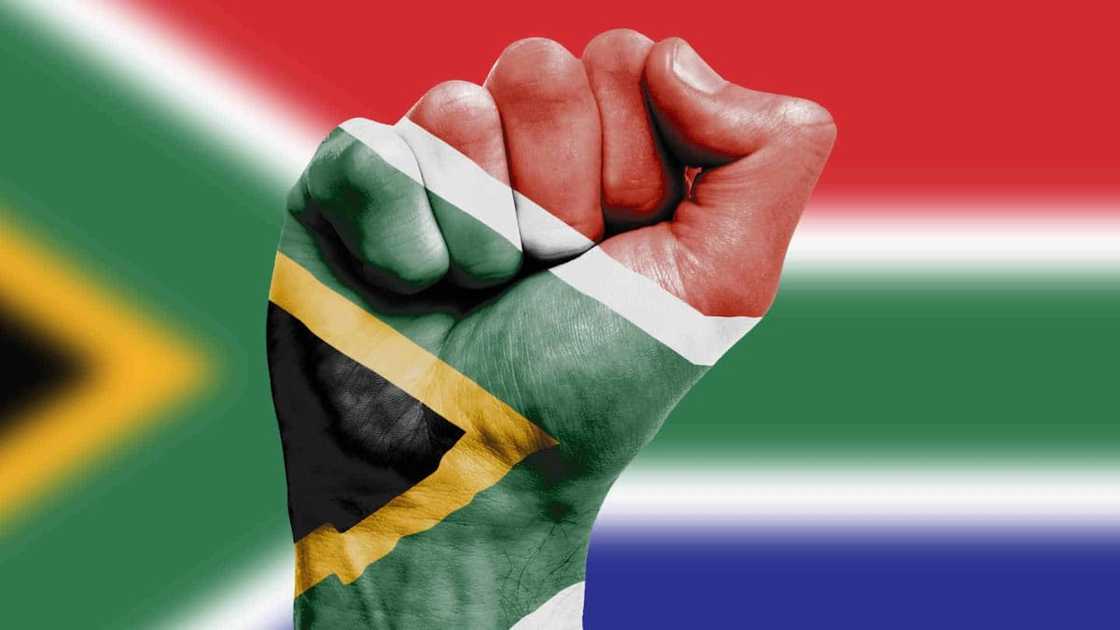
Source: Twitter
TABLE OF CONTENTS
President Cyril Ramaphosa's Freedom Day South Africa theme for the people is The year of Charlotte Maxeke: The meaning of freedom under COVID-19. How many years of freedom do we have in South Africa? It has been 31 years of freedom and democracy since South Africa Attained independence in 1994.
Freedom Day South Africa history
Freedom Day was first held on 27th April 1995 to commemorate the first democratic, non-racial, post-apartheid election. The elections took place on the same date in 1994 after over 300 years of colonialism, apartheid, and white minority rule.
The arrival and establishment of the Dutch settlement in the Cape on 6th April 1652 was the beginning of colonialism in South Africa. They came under the Dutch East India Company and took over the nation between 1652 to 1815. The British and Boer republics took over from the Dutch from 1815 to 1910. They formed the Union of South Africa and continued to rule from 1910 to 1948.
Apartheid, the Afrikaans word for 'separateness', was established in 1948 but collapsed in 1994. The white minority rule exerted extreme oppression and brutality on South African natives. Colonialists snatched their land, denied them various rights, and subjected them to racial segregation and extrajudicial killings.
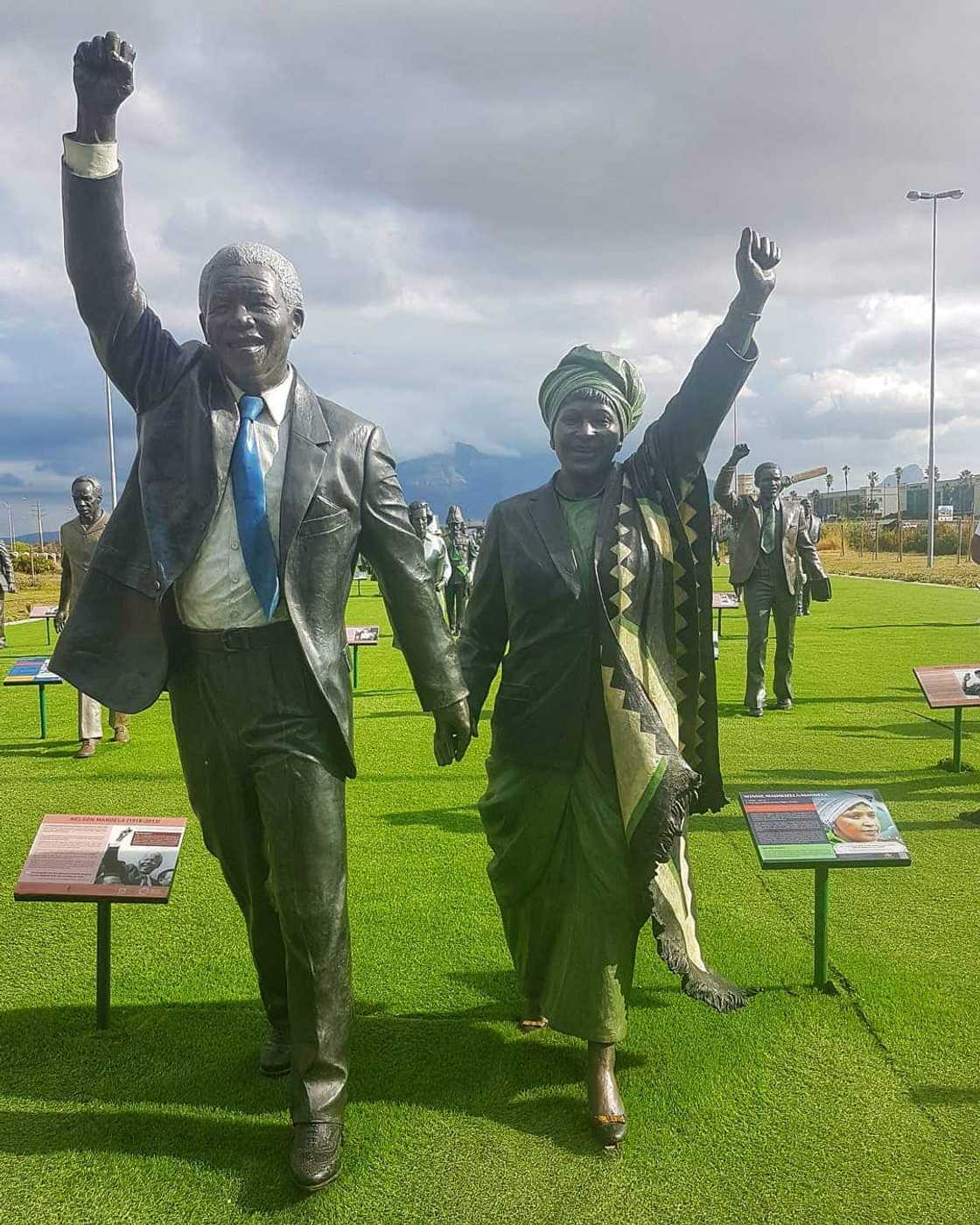
Source: Instagram
In 1984, the situation began to slightly look up when Blacks and Indians were granted limited right to vote in forthcoming elections. F. W. Dear Klerk became the president in 1989 and began the dismantling of the apartheid regime.
On 2nd February 1990, De Klerk lifted the ban on the African National Congress (ANC), South African Communist Party (SACP), Pan Africanist Congress (PAC) and other African political parties. It was the beginning of freedom for the natives.
On 11th February 1990, De Klerk ordered Nelson Mandela's release after 27 years in prison. Negotiations with the current minority government began afterwards, leading to the non-racial constitution's establishment in 1993.
South Africa's first post-apartheid election on 27th April 1994 saw Nelson Mandela becoming the nation's first democratically elected president; the day is celebrated as Freedom Day. On 10th May 1994, Mandela was inaugurated and legally took office.
What is the importance of Freedom Day in South African schools?
Freedom Day 2021 reminds students that they can change the world at a young age through peaceful means. More than 20,000 Sowetan teenagers protested in Soweto streets against the introduction of Afrikaans as a teaching language in local schools. Police injured, shot, and killed many students. In the end, South Africa still broke free from colonialism.
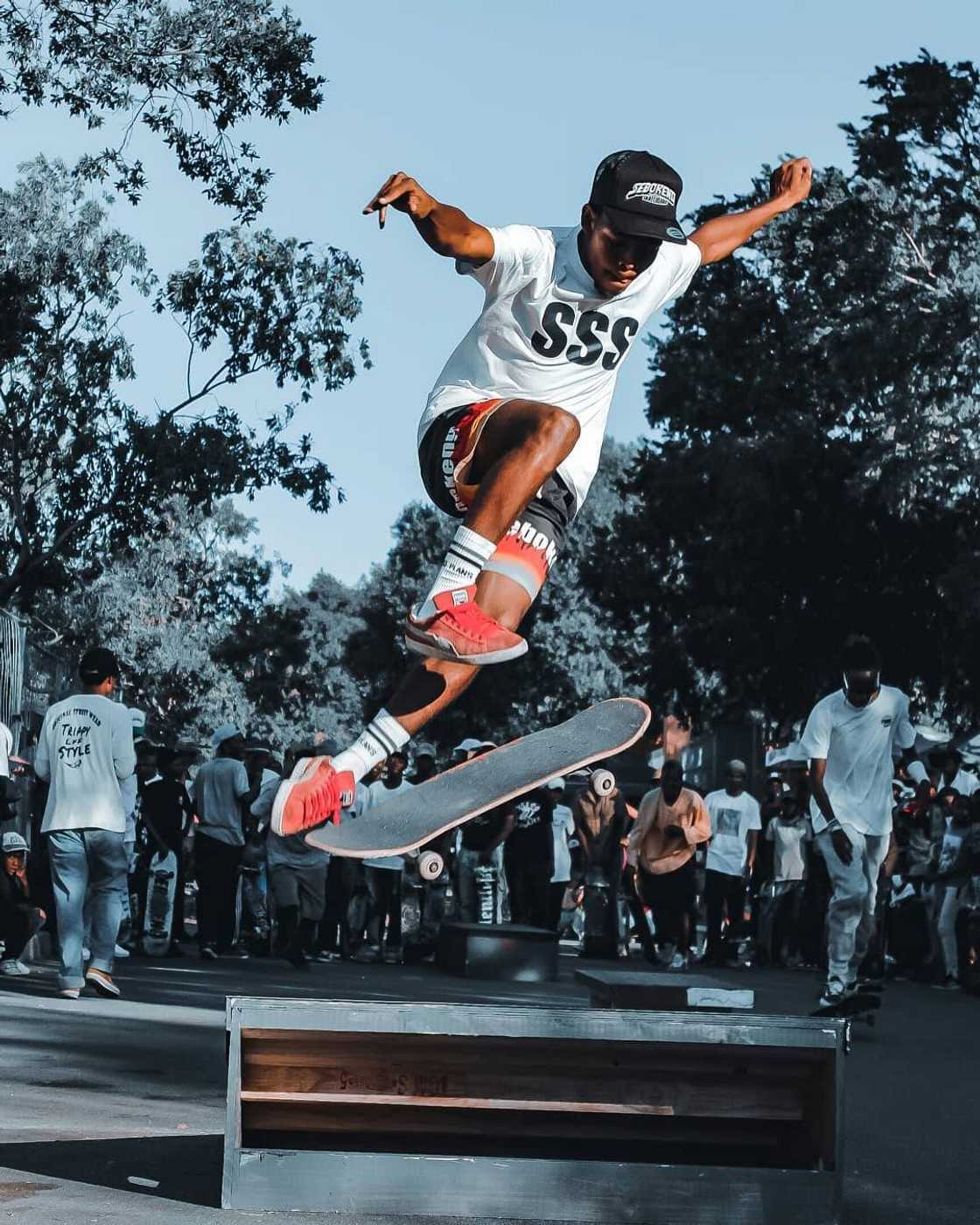
Source: Instagram
Facts about Freedom Day in South Africa
- Various groups and social movements like the UN Freedom criticizes the SA's government over the lack of freedom in the country years after independence.
- During the 1994 elections, 22.7 million South Africans from all races, 18 and above, were registered as voters.
- The ANC won the election with 62.64% of the votes. The National Party gathered 20.39%, Inkatha Freedom Party got 10.54%, Freedom Front got 2.2%, Democratic Party had 1.7%, the Pan African Congress gathered 1.2%. The African Christian Democratic Party gained 0.5% of the total votes cast on that day.
- The current flag of South Africa, a multicoloured marvel, earning the country the name Rainbow Nation, was adopted as the official flag on April 27th, 1994, replacing the 1928 flag. The current flag represents the ethnic diversity and multiculturalism of the nation as a whole.
- Who fought for freedom in South Africa? Nelson Madiba Mandela is the father of Modern-day South Africa, for he was at the forefront of the fight for freedom. Other freedom fighters like Ahmed Kathrada, Walter Sisulu and Winnie Mandela supported him.
- Madiba was arrested in 1961 for treason, acquitted and re-arrested later for illegally leaving the country in 1962.
- After a 27-years-jail term under harsh conditions and heavy labour on Robben Island Prison, Mandela was put on trial and charged with sabotage in 1964. He marched forth with his people and became the nation's first president and preaching the message of peace and kindness.
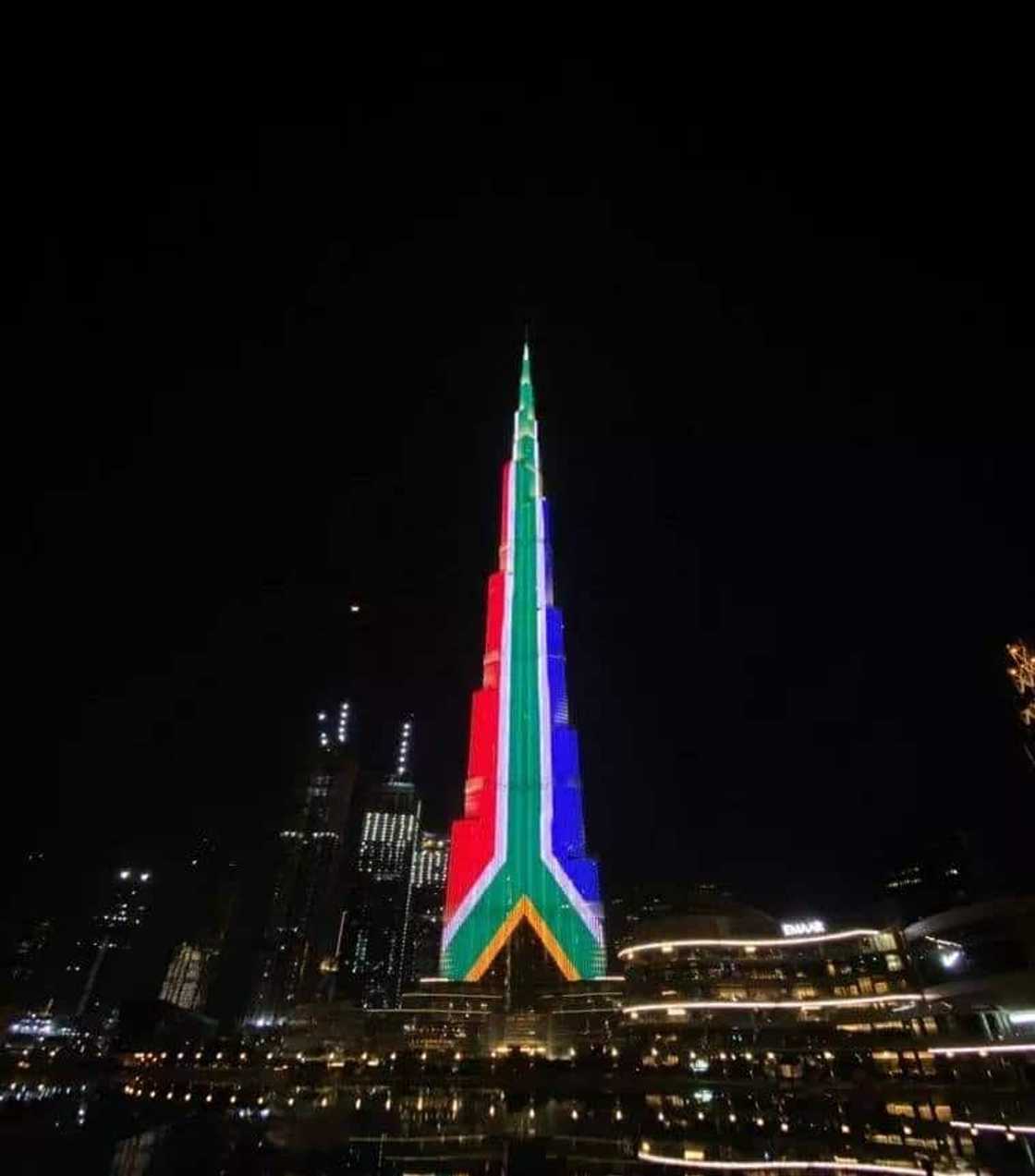
Source: Facebook
How do we celebrate Freedom Day?
People love visiting the beach, hotels, parks, Robben Island Prison, Soweto, The Hector Pieterson Memorial, District Six Museum, and the Apartheid Museum on this day. It is not yet safe to go out, especially to crowded areas, because of the COVID 19 pandemic. Therefore, here are a few ideas for indoor Freedom Day South Africa celebrations:
- Watch movies about Mandela's story, such as Mandela: Long Road to Freedom (by Idris Elba), Music for Mandela, Nelson Mandela: The Myth and Me, Mandela’s Gun, and Invictus (by Morgan Freeman).
- Read literature from South African authors like Waiting for the Barbarians by J. M. Coetzee. Madiba also wrote multiple books about himself, including Conversations with Myself, The Prison Letters of Nelson Mandela, In His Own Words: From Freedom to the Future, and Dare Not Linger: The Presidential Years.
- Listen to South African music. There are diverse types of music to choose from. The older generation will appreciate traditional and old school music while the young people will go for music made by modern Mzansi artists. Whichever songs you choose, may it bring joy to your soul.
- Celebrate with classy Mzansi wine like House of Mandela and Rupert & Rothschild after devouring a sumptuous traditional dish. You can learn how to make South African dishes or order from a food delivery app. Mandela's favourite wine was Klein Constantia'sVin de Constance.
- Decorate your home with Freedom Day South Africa images. You can also promote local businesses by wearing clothes with Freedom Day decorations.
- Remember to share meals, money, and anything you have with the needy.
Freedom Day South Africa quotes
When Mzansi celebrated the first Freedom Day in 1995, President Mandela gave a heartwarming speech requesting the people never to forget their roots and honour those who relentlessly fought for them. He encouraged them to embrace each other regardless of their diversities.
Freedom Day speeches from proceeding Mzansi presidents have always emphasized what Madiba told the people. Here are five happy Freedom Day South Africa quotes from Nelson Madiba Mandela:
1. Mandela dedicated Freedom Day to all South African freedom fighters
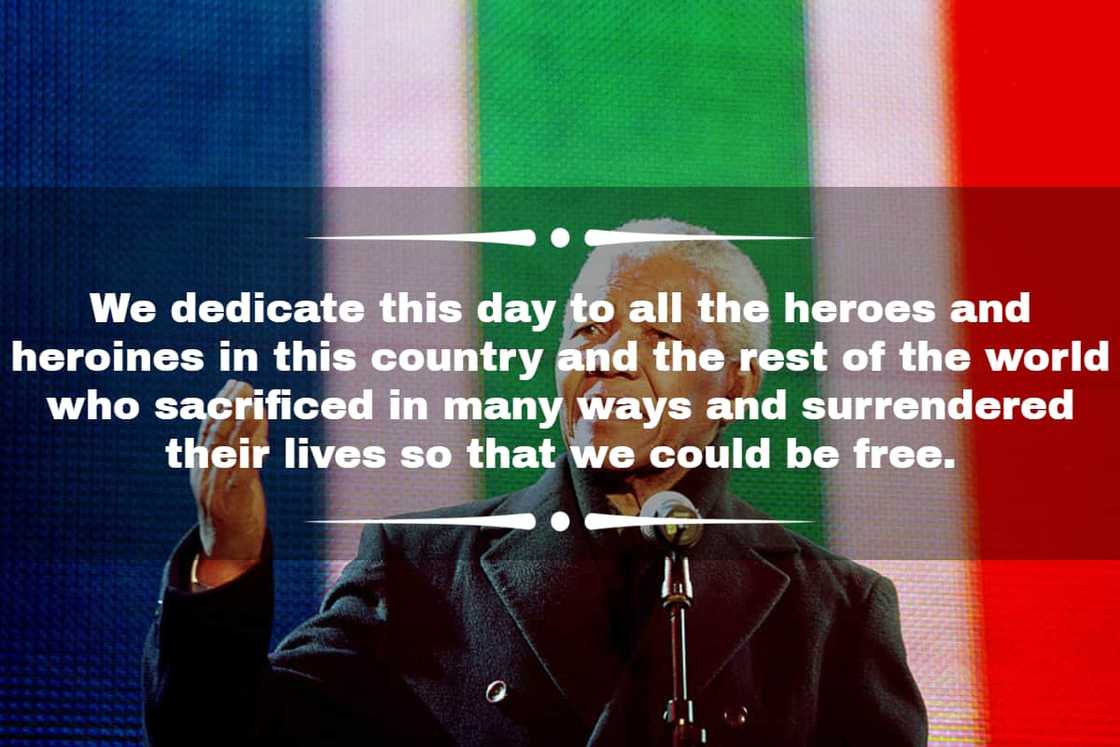
Source: UGC
Mandela did not take all the credit for Mzansi's independence. He acknowledged fellow ANC members who used peaceful tactics like demonstrations and strikes to protest against apartheid. He also appreciated all South Africans who participated in the strikes and demonstrations.
2. Madiba honoured the dead John Langalibalele Dube
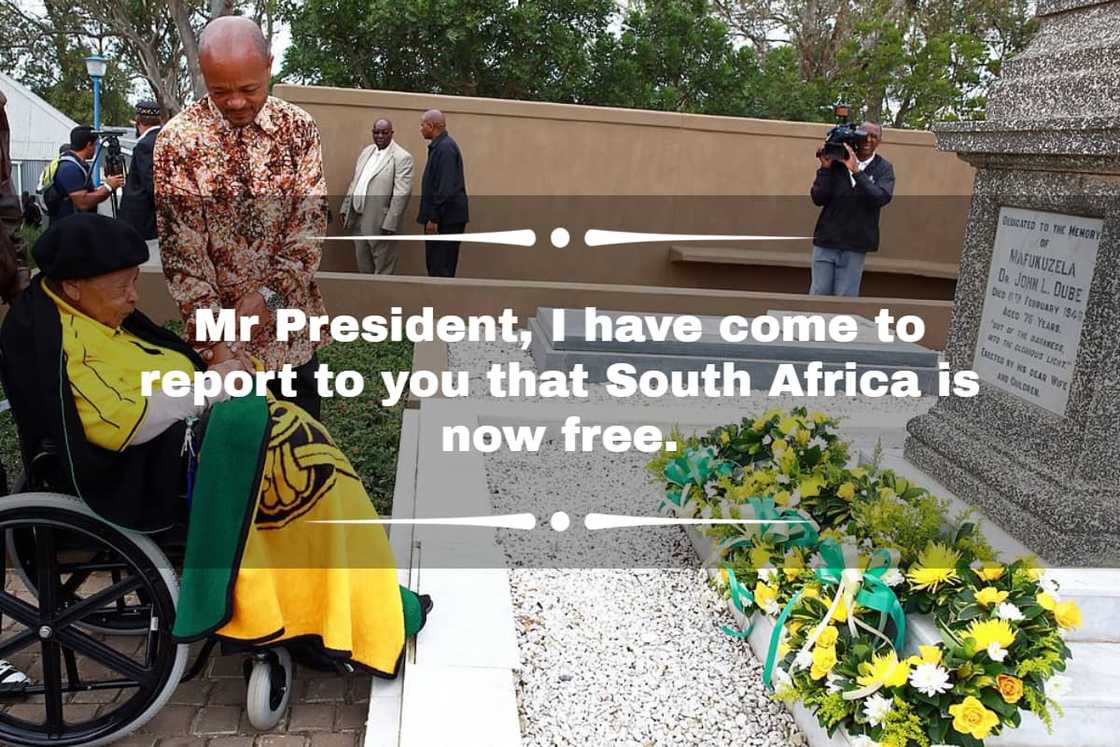
Source: UGC
The late Nelson Mandela visited John Langalibalele Dube's gravesite (the first ANC's President-General) after casting his vote in South Africa's first democratic elections on 27th April 1994. He said that South Africa was free.
3. Madiba valued hard work
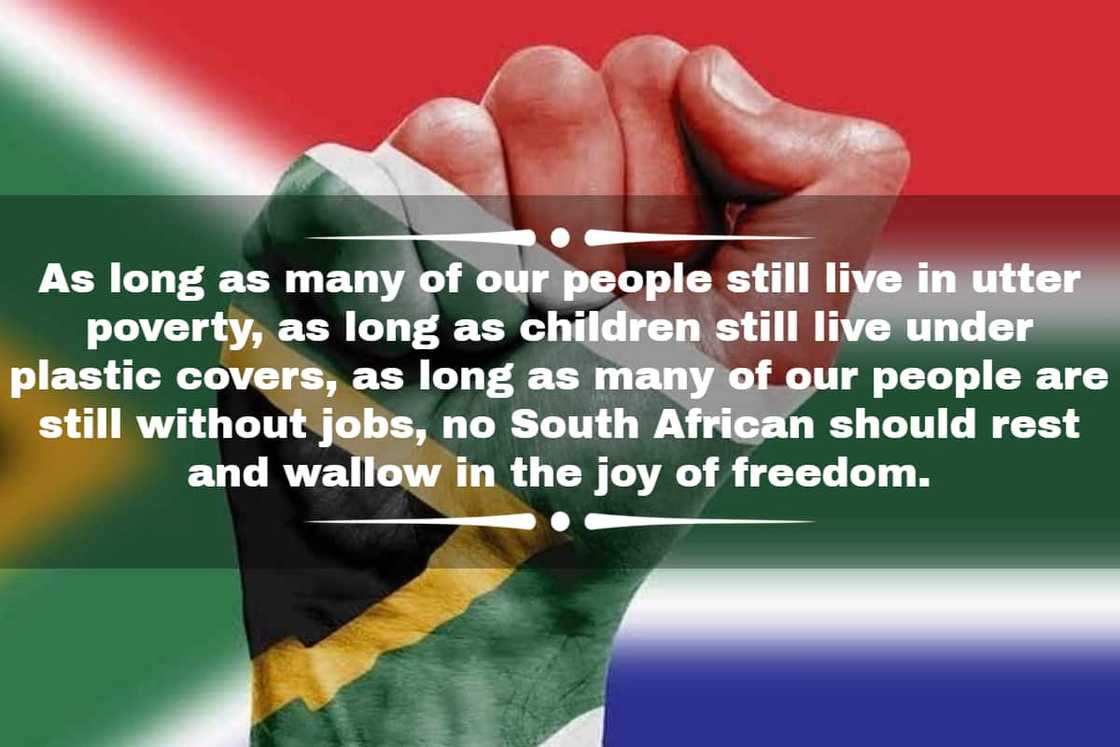
Source: UGC
He discouraged South Africans from being lazy after attaining independence because they had to develop their country. He wanted to see a nation where people whole-heartedly promote education, share resources, negotiate strategic political relations, reform corrupt and non-performing systems, empower women, and so on.
4. Mandela's take about leadership
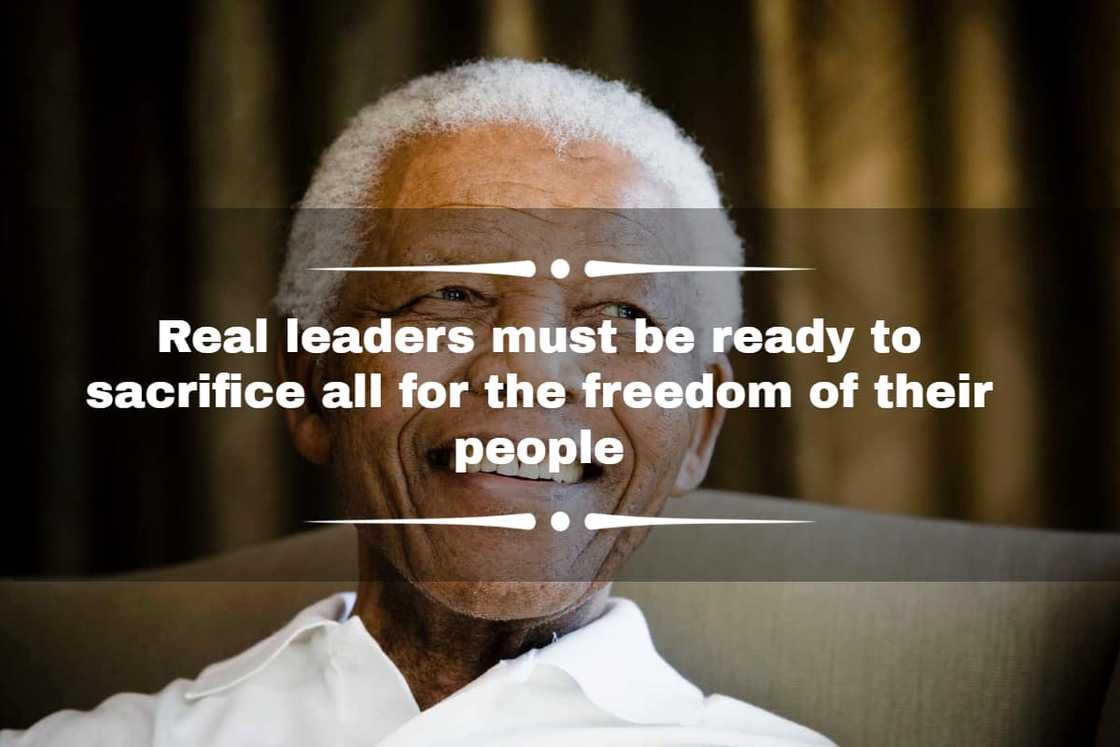
Source: UGC
Madiba believed that a leader must forfeit some professional or personal privileges for the sake of the followers. The leader should invest in developing others, providing them with adequate resources, and fighting for their rights.
5. Mandela gave a wise definition of freedom
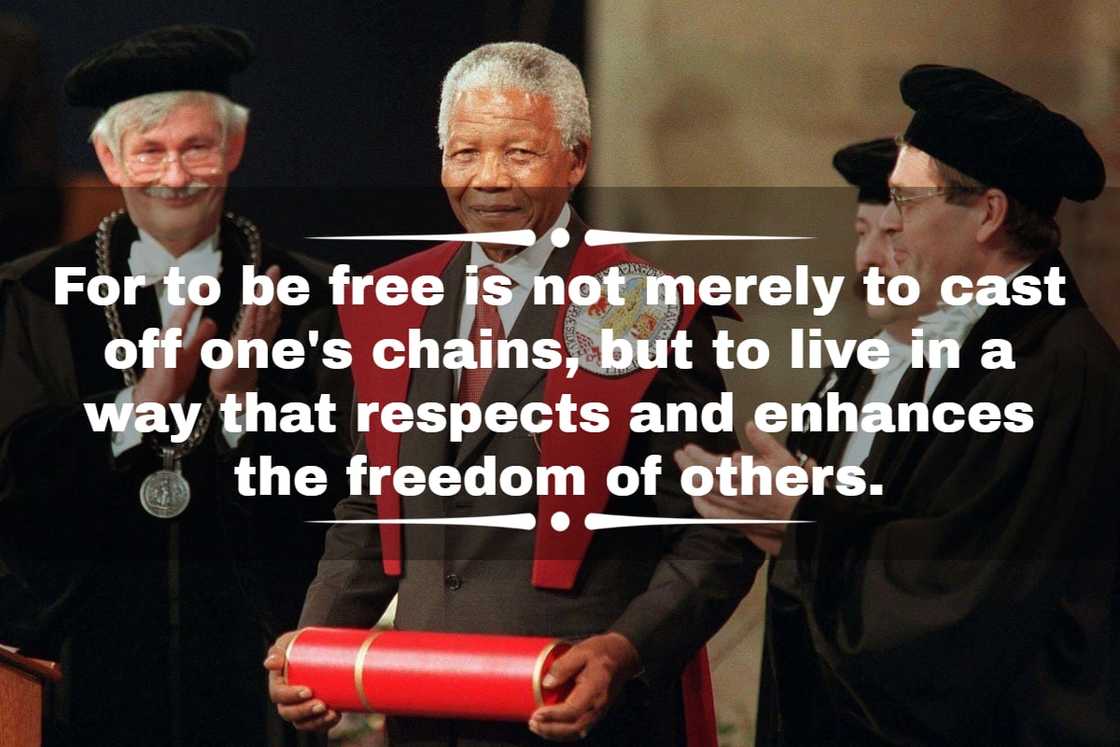
Source: UGC
Nelson defined freedom as tolerating and respecting each other's different views about life. Accepting one another with humility, gentleness, and patience allows peace and unity to prevail among people.
Freedom Day South Africa is a reminder that social vices such as corruption and inequality cancel out freedom fighters' efforts to wipe out racism, promote equal rights for all citizens. If leaders do not eradicate corruption and selfish leadership, South Africans are still in bondage.
READ ALSO: Male and female South African leaders that fought for democracy and their exact contribution
How many people who fought for democracy in South Africa do you know? Briefly.co.za honoured Mzansi heroes by educating the public about them. These heroes deserve more than fame. Protect your freedom by obeying the laws of the country, paying your taxes, loving one another and protecting your country’s resources.
Source: Briefly News

